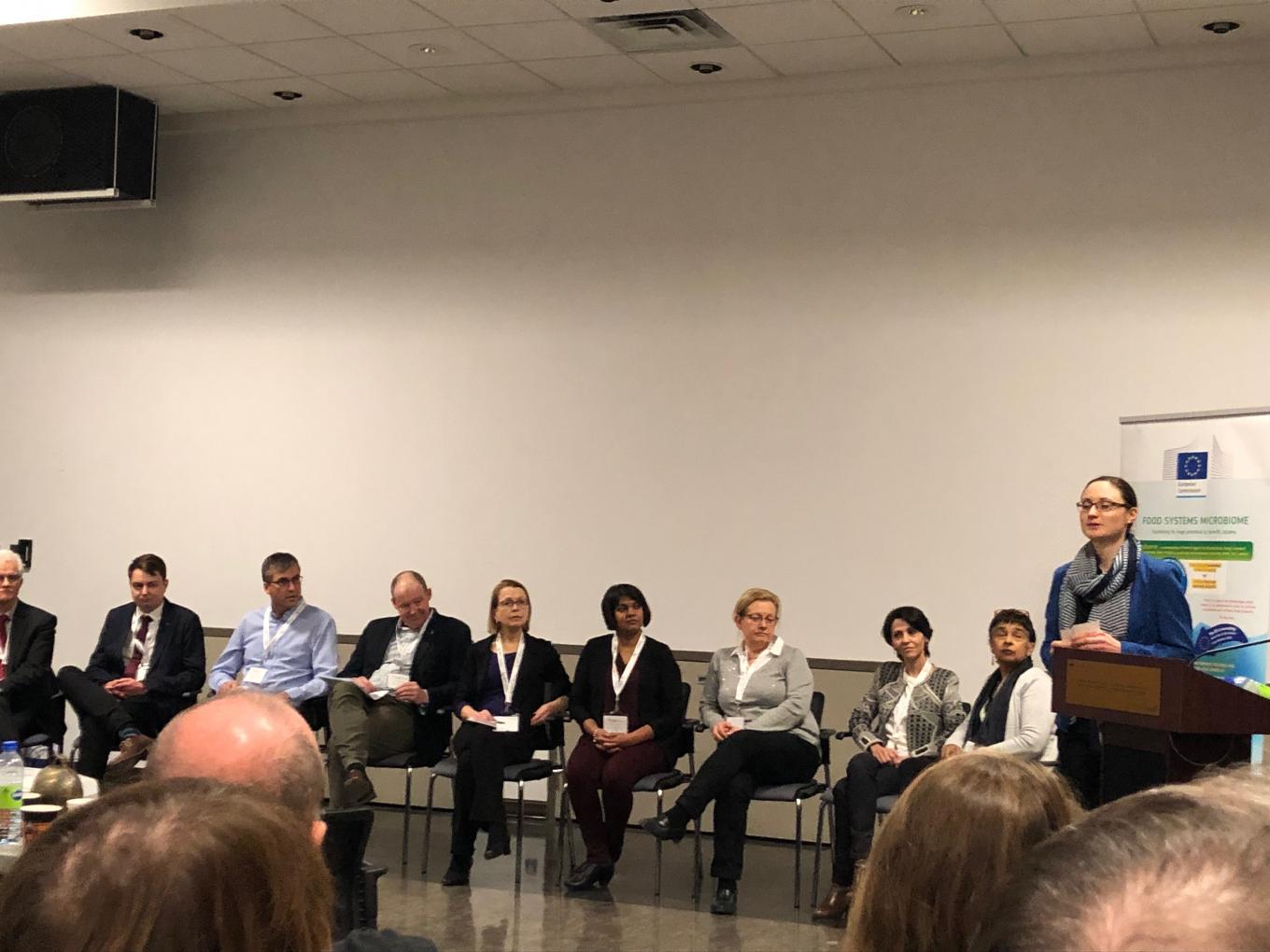The group met in Ottawa, to hare scientific updates on related activities in countries across the world, plan of mapping exercises as well as learn of funding opportunities under the European Commission’s framework programs.

One of the new words in our scientific vocabulary is “microbiome” What exactly is this and why is it significant? These questions spurred the Representative to attend a recent meeting of the Food System Microbiome Working Group.
The word “microbiome” is commonly used to refer to a community of microorganisms in a particular environment. Therefore, microbiomes can exist in the human body (hence the now well-known Human Microbiome Project), ecosystems, agri-food systems and the list could go on. With an increased appreciation of the nature and functions of the microbiome, understanding the role the microbiome plays in food production and nutrition would clearly help us address some of the environmental and food security challenges facing the world. This was the underlying rationale of the International Bioeconomy Forum (IBF), a flexible multilateral informal platform established by the European Commission in 2016 to share knowledge, policies, and strategies for promoting innovation in key sectors of the world’s bioeconomy.
The Food System Microbiome working group is one of four IBF WG that met in Ottawa November 27th to 29th, to share scientific updates on related activities in countries across the world, plan mapping exercises as well as learn of funding opportunities under the European Commission’s framework programs. Comprised of representatives and funding partners from European Commission, Canada, USA, New Zealand, Australia, Argentina, Brazil, China, India, and South Africa, members who attended the meeting ensured that the discourse was pertinent to the overall goals and reflected of the diversity of member countries.
The IICA Canada Representative was invited to present on the Institute’s new hemispheric program : ‘Bioeconomy and Production Development’, during the Inter-Working Group Dialogue, where contributions were heard from the Plant Health, ICT in Precision Food Systems, and Forest Bioeconomy Work Groups. Synergies were evident and the expanding network will certainly auger well for IICA!
IICA is an Observer Member of the IBF.
For further information:
Dr. Audia Barnett:











